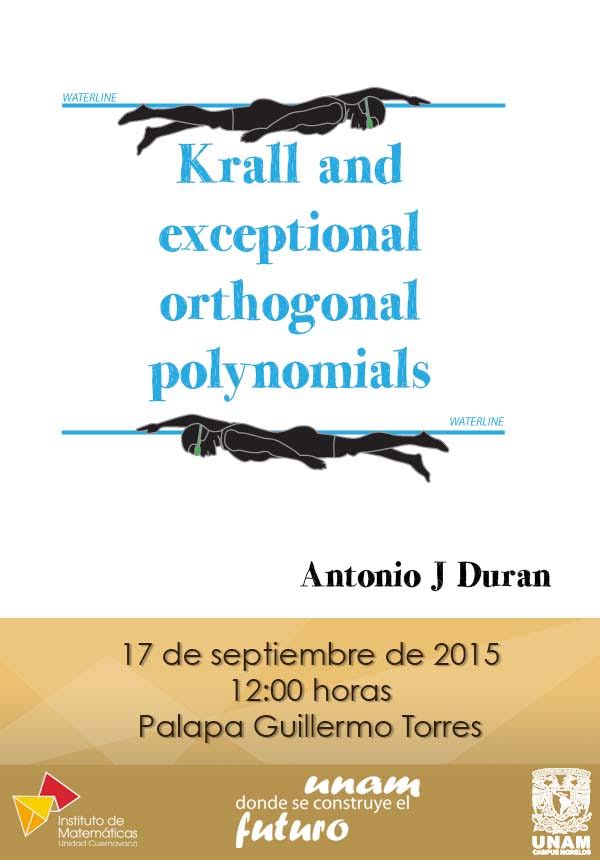Coloquio
Jueves 17 de septiembre de 2015
12:00hrs
Palapa Guillermo Torres
Imparte(n)
Responsable(s):

Krall and exceptional polynomials are two of the more important extensions of the classical families of Hermite, Laguerre and Jacobi. On the one hand, Krall or bispectral polynomials are orthogonal polynomials which are also eigenfunctions of a differential operator of order bigger than two (and polynomial coefficients). The first examples were introduced by H. Krall in 1940, and since the eighties a lot of effort has been devoted to this issue. If we consider difference operators, the first examples of Krall discrete polynomials were introduced by the author in 2012 using certain Christoffel transforms of the classical discrete weights. The first part of this talk will be devoted to show how these Krall discrete polynomials can be constructed. On the other hand, exceptional polynomials are orthogonal polynomials which are also eigenfunctions of a second order differential operator, but they differ from the classical polynomials in that their degree sequence contains a finite number of gaps, and hence the differential operator can have rational coefficients. In mathematical physics, these functions allow to write exact solutions to rational extensions of classical quantum potentials. Taking into account the above definitions, it is scarcely surprising that no connection has been yet found between bispectral and exceptional polynomials. However, at the discrete level, something very exciting happens: Duality interchanges Krall discrete and exceptional discrete polynomials. The second part of this talk will be devoted to explore some of the consequences of this unexpected connection.
Compartir este seminario